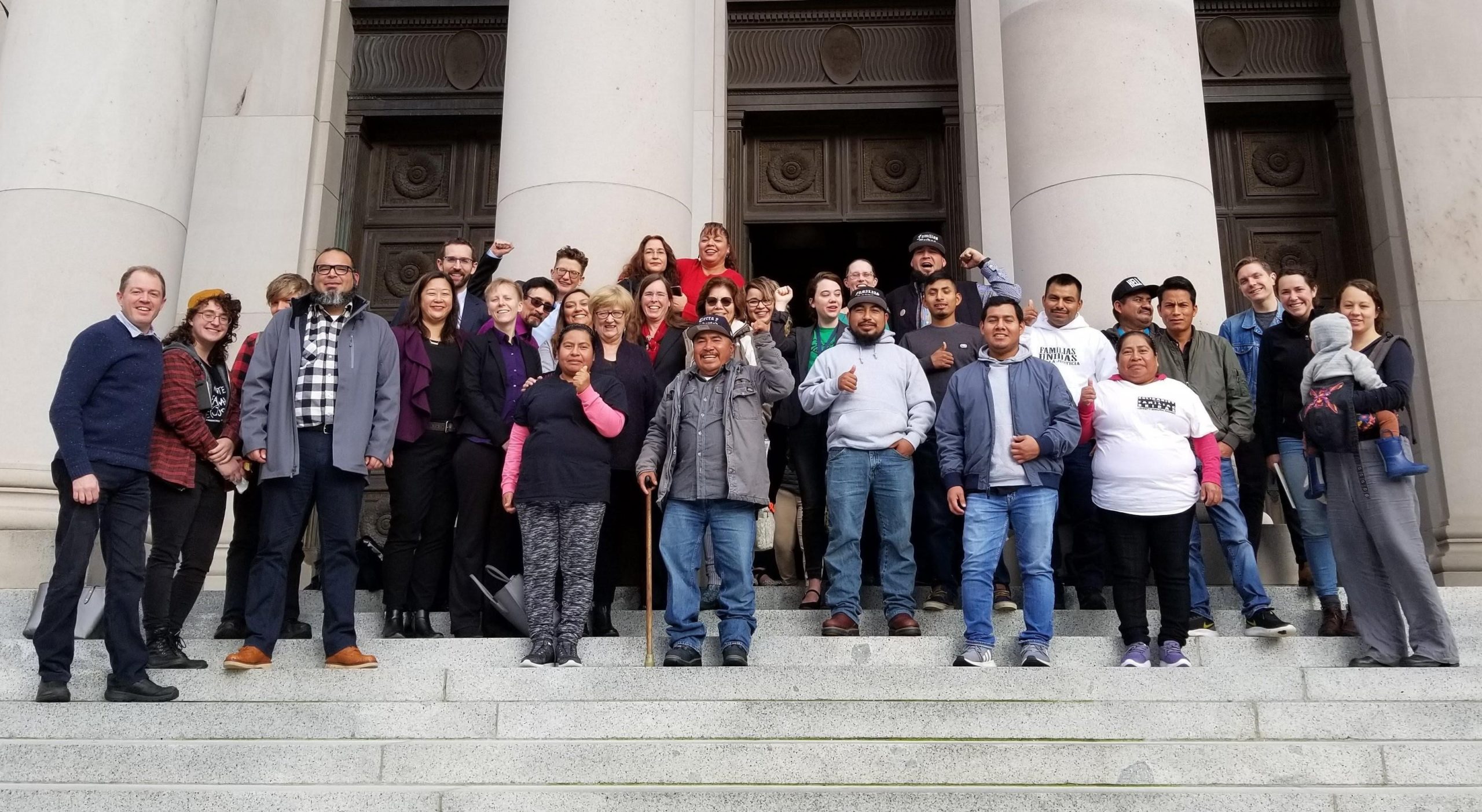How Washington State Advocates Navigated Early Days of COVID-19 to Uplift and Partner with Communities
December 16, 2020

Real change in the fight for economic and racial justice always stems from community action. Effective advocates garner and activate issues identified by the communities they serve. Advocates must build strong relationships with community members and work alongside community groups to enhance impacted individuals’ power to make change. This is community lawyering.
Community lawyering is integral to the advocacy practice at Columbia Legal Services (CLS), a legal services provider in Washington State that is focused on building its community’s collective power. CLS’s approach requires near constant interaction and relationship-building with various community groups, organizers, and people impacted by the effects of poverty and racism. This includes regular meetings with agricultural workers, unions, and other advocates for farmworker justice in rural areas, as well as visits to prisons, and other weekly in-person meetings with prisoner rights’ advocates and partners.
The COVID-19 pandemic has challenged CLS’s community-led movement lawyering and systemic approach to advocacy. In the early days of the pandemic, Washington State, in particular Seattle, was a hot spot for the virus. As the virus spread across the country, outbreaks were closely linked to spaces where people are not able to socially distance. Moreover, it became clear that America’s legacy of structural racism would lead to higher infection rates in Black and Latinx communities. CLS Deputy Director of Advocacy Nick Allen and his team knew early on that their incarcerated and farmworker clients were at risk due to their living and/or working conditions.
“Needless to say, the interactions we were used to having with our clients and community groups became impossible almost overnight,” said Nick, also an alumnus of the Shriver Center’s Racial Justice Institute. In the face of the pandemic, when close human interaction has dangerous consequences, Nick and his CLS colleagues decided that they had to come up with a new model for meaningful community lawyering. “I have been amazed at how quickly and effectively our communities and CLS have adapted to make certain that we continue to work in support of community movements to protect people who are incarcerated and immigrant populations,” he continued.
CLS has taken several steps to sustain a community lawyering approach during COVID-19, including:
At the same time, CLS advocates were asked to stand with agricultural workers who faced exposure to dangerous conditions and sought enforceable protections from COVID-19. To meet these workers’ needs, CLS quickly created criteria and guidelines designed to protect staff and community members when engaging in face-to-face advocacy at strikes and community meetings. The guidelines supported CLS advocates in observing employers’ actions, connecting and standing with workers, and taking action to enforce workers’ rights through a complaint filed with the National Labor Relations Board and two lawsuits seeking worker protections from state agencies.
CLS’s response to the COVID-19 pandemic is a testament to the importance of a community lawyering approach. Because Nick and his colleagues had worked to establish genuine relationships with community members before the crisis, they were able to respond quickly and effectively to their needs, while sustaining those relationships through the creative use of communications and technology tools. Garner the power of community lawyering to achieve real change in your community. Learn more and register for the Shriver Center’s next Community Lawyering training.